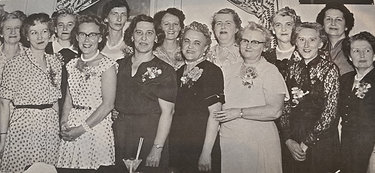All are welcome under volunteer first-responder tax exemption, state says
RENSSELAERVILLE — Fire Chief John Gordon, of the Medusa Volunteer Fire Company, had important questions last month about how New York State’s recently authorized 10-percent property tax exemption for fire and ambulance volunteers would apply to his company, should the Rensselaerville Town Board offer it.
“I have people with 35 years [of] frontline firefighting who are now fighting cancer and can no longer do that, and they’re retired and everything else,” Gordon told The Enterprise last month. “What about those people?”
There’s also a woman in his company who “has been with the fire department longer than me, and I’ve been here 42 years,” he said. “Would she be eligible?”
They were questions without a clear answer, and similar to those being asked by Chief Ed Hake of Rensselaerville Fire Company, who wondered whether the state law distinguished between firefighters and “battalion-type members” who, like those that Gordon described, may serve in a supportive, administrative, or legacy role.
“This is where it gets sticky, because some of the people that are there … they may not be firefighters but they are supporting in other ways,” Hake said.
These supportive members are often just as vital to public safety as those that are out dowsing fires, insofar as they maintain the organization and free up the firefighters for their emergency functions.
As Gordon put it, in terms of ladies’ auxiliaries, “Without a woman’s help, you don’t exist. Period.”
The good news for Gordon, Hake, and volunteers throughout the state is that New York State does not particularly care how broadly municipalities interpret the phrase “active member” so long as it’s a definition supported by the fire and ambulance groups in question, as Darren Dopp of the New York State Tax and Finance Department explained to The Enterprise this week.
“The law allows the exemption to be granted to “enrolled members” of incorporated volunteer fire companies, fire departments, and incorporated voluntary ambulance services,” Dopp said. “It delegates to each municipal governing body the responsibility to determine the procedure for the certification of enrolled members.
“The particulars are to be specified by the governing body of each municipality that chooses to offer the exemption,” he continued. “New York State cannot make any blanket statements about how broadly the exemption should be administered; that is a local decision.”
So far, in the Enterprise coverage area, municipalities and school districts have deferred to their volunteer organizations, opting not to impose any additional requirements. But it’s possible that the Rensselaerville Town Board will be less hands-off, with Deputy Supervisor Brian Wood stating at a meeting earlier this year that there should be clear regulations around who is eligible.
Wood could not be reached for comment, though the board has since tabled its law and is currently awaiting Albany County’s version. The draft of the county version shared with The Enterprise by county spokeswoman Mary Rozak last month, however, leaves the definition at “enrolled members” of the various types of organizations authorized for the exemption by the state.
From there, eligibility would then be determined, essentially, by organization by-laws, which may have attendance or other sorts of requirements for members to ensure a certain level of engagement.
In cases where two people who own the same home would be eligible, only one person can claim the property tax exemption, but the other can claim a $200 workers’ credit, according to the Department of Taxation and Finance website.
For his part, Gordon hopes that his town’s law will encompass anyone who has been dedicating their time to his company.
“I’d like to see those who have served become rewarded,” Gordon said. “It’s that simple.”



